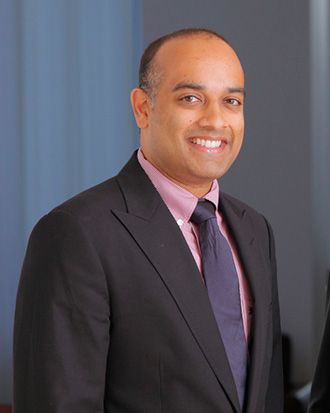Four neuro-oncology experts to lead new glioblastoma research center
This article first appeared in Targeted Oncology. Read the original here.
NewYork-Presbyterian has established the William Rhodes and Louise Tilzer-Rhodes Center for Glioblastoma, to be led by physicians from Columbia University Medical Center and Weill Cornell Medicine.
The center aims to conduct groundbreaking research and provide cutting-edge treatments for glioblastoma and other deadly brain cancers, according to a news release from NewYork-Presbyterian.
As a part of the new center, patients will have access to more clinical trials for potential treatments of glioblastoma, including those using immunotherapy agents and precision medicine techniques.
Leading the program are four experts in the field of neuro-oncology: Jeffrey Bruce, M.D., FACS, co-director of the Brain Tumor Center at NewYork-Presbyterian/Columbia University Medical Center; Andrew Lassman, M.D., chief of the division of neuro-oncology in the Department of Neurology and co-director of the Brain Tumor Center at NewYork-Presbyterian/Columbia University Medical Center; Howard Fine, M.D., founding director of the Brain Tumor Center at NewYork-Presbyterian/Weill Cornell Medical Center and Weill Cornell Medicine; and Rohan Ramakrishna, M.D., a surgical neuro-oncologist in the Brain Tumor Center at NewYork-Presbyterian/Weill Cornell Medical Center and Weill Cornell Medicine.
Department leaders in neurology and neurosurgery at Columbia University Medical Center and Weill Cornell Medicine will also play a guiding role at the center, including Richard Mayeux, M.D., MSc; Robert Solomon, M.D., FACS; Matthew Fink, M.D.; and Philip Stieg, M.D., Ph.D.
Mayeux is neurologist-in-chief at NewYork-Presbyterian/Columbia University Medical Center, the Gertrude H. Sergievsky Professor of Neurology, Psychiatry, and Epidemiology, and chair of the Department of Neurology at Columbia University Medical Center, and co-director of the Taub Institute; Solomon is neurosurgeon-in-chief at NewYork-Presbyterian/Columbia University Medical Center; Fink is neurologist-in-chief at NewYork-Presbyterian/Weill Cornell Medical Center, and the Louis and Gertrude Feil Professor in Clinical Neurology and chairman of the Department of Neurology at Weill Cornell Medicine; and Stieg is neurosurgeon-in-chief at NewYork-Presbyterian/Weill Cornell Medical Center and professor and chairman of the Department of Neurological Surgery at Weill Cornell Medicine.
The William Rhodes and Louise Tilzer-Rhodes Center for Glioblastoma aims to advance care for glioblastoma by providing multidisciplinary, research-driven patient care, with a focus on genomic and precision medicine; emphasizing translational research to rapidly bring promising new therapies from the bench to the bedside; and educating the next generation of clinicians and scientists, with new fellowships created to expose young physicians to the most cutting-edge work being done in the field, according to the release.
The volume of brain tumor cases seen at NewYork-Presbyterian Hospital is among the highest in the country, and the hospital has been consistently ranked among the nation’s best for neurology and neurosurgery by US News and World Report.
The center was launched with an initial $5 million gift from William Rhodes, a life trustee of NewYork-Presbyterian since 1992. The program also honors Louise Tilzer-Rhodes, who passed away from glioblastoma in June 2016.
“Thanks to the generosity of Mr. Rhodes, we have an opportunity to make tremendous strides in our understanding and treatment of glioblastomas,” said Steven J. Corwin, M.D., president and CEO of NewYork-Presbyterian, in a statement. “NewYork-Presbyterian is committed to becoming the world’s leader in the fight against this deadly disease.”
Despite some treatment advances in recent years, malignant brain tumors are the most common cause of cancer-related deaths among adolescents and young adults aged 15 to 39 years.
Glioblastoma is the most common form of malignant brain tumor, known for its rapid growth and resistance to most treatments. Only 1 in 10 glioblastoma patients survive 5 years after initial diagnosis.
Rhodes’ gift will enable these physicians to work across campuses, share information, and explore pioneering new treatment options for malignant brain cancers. It will also give patients access to a greater number of clinical trials, including those using immunotherapy and precision medicine techniques, a promising new frontier in neuro-oncology.
“Glioblastoma has had a profound impact on my family and countless others. It’s so important that we bring together and empower the brightest minds to bring new therapies—and one day, a cure—to patients,” Rhodes said.
Additional coverage:
NewYork-Presbyterian establishes glioblastoma research center - HemOnc Today




